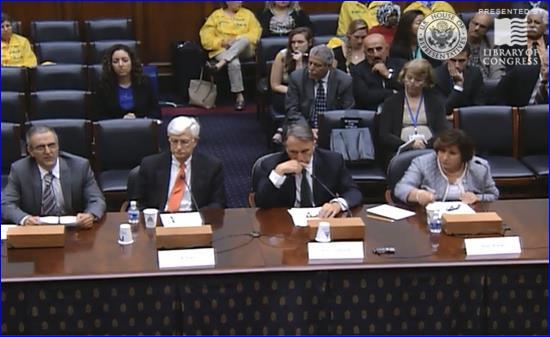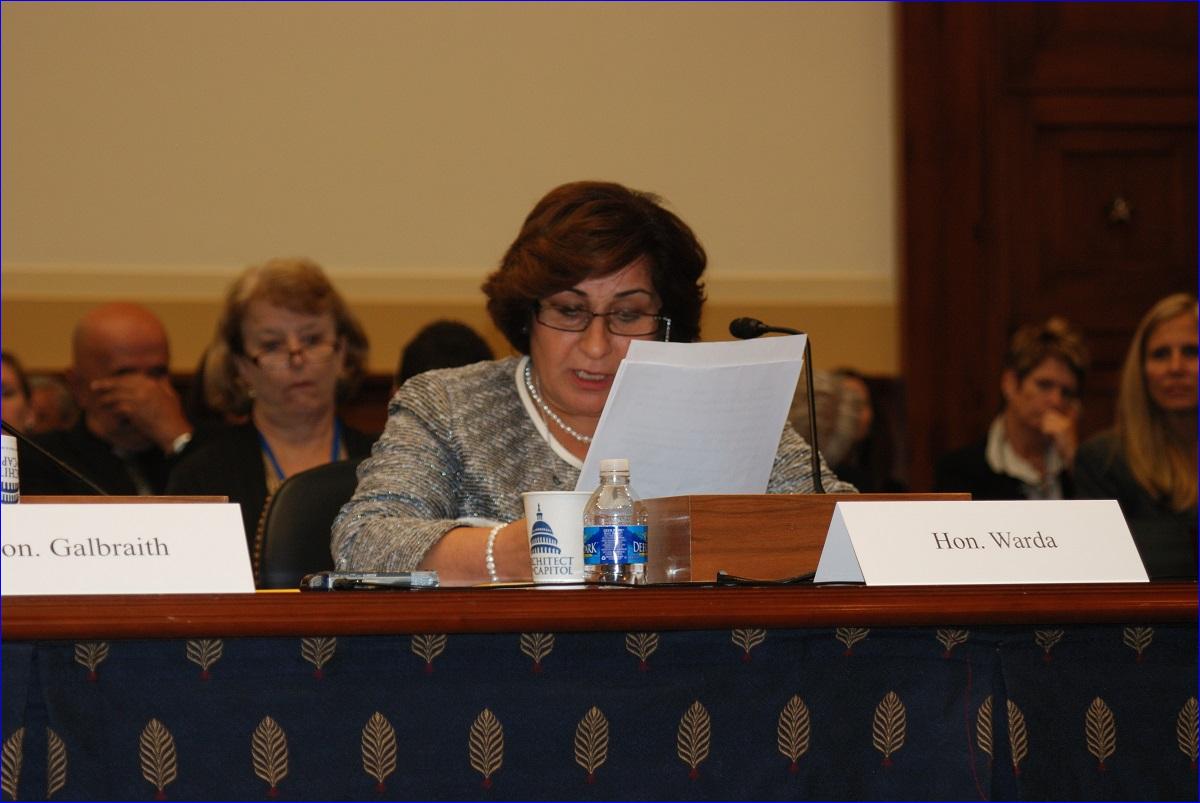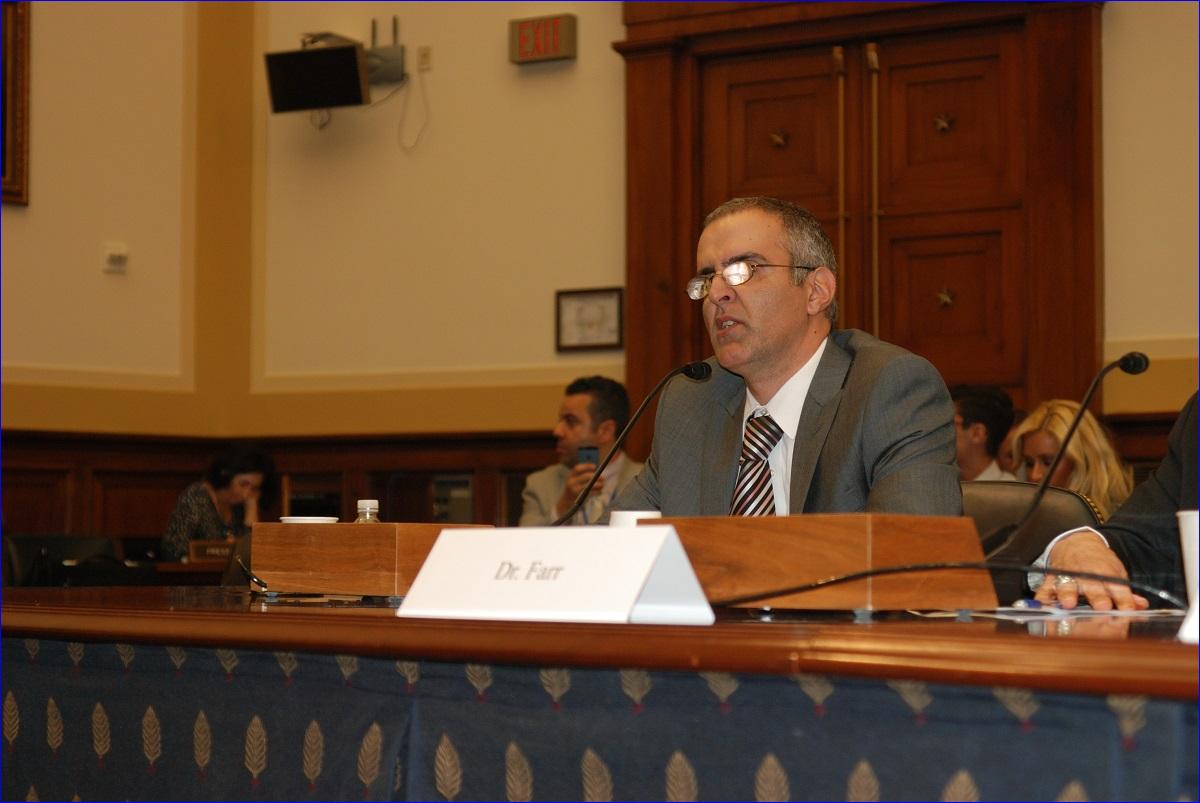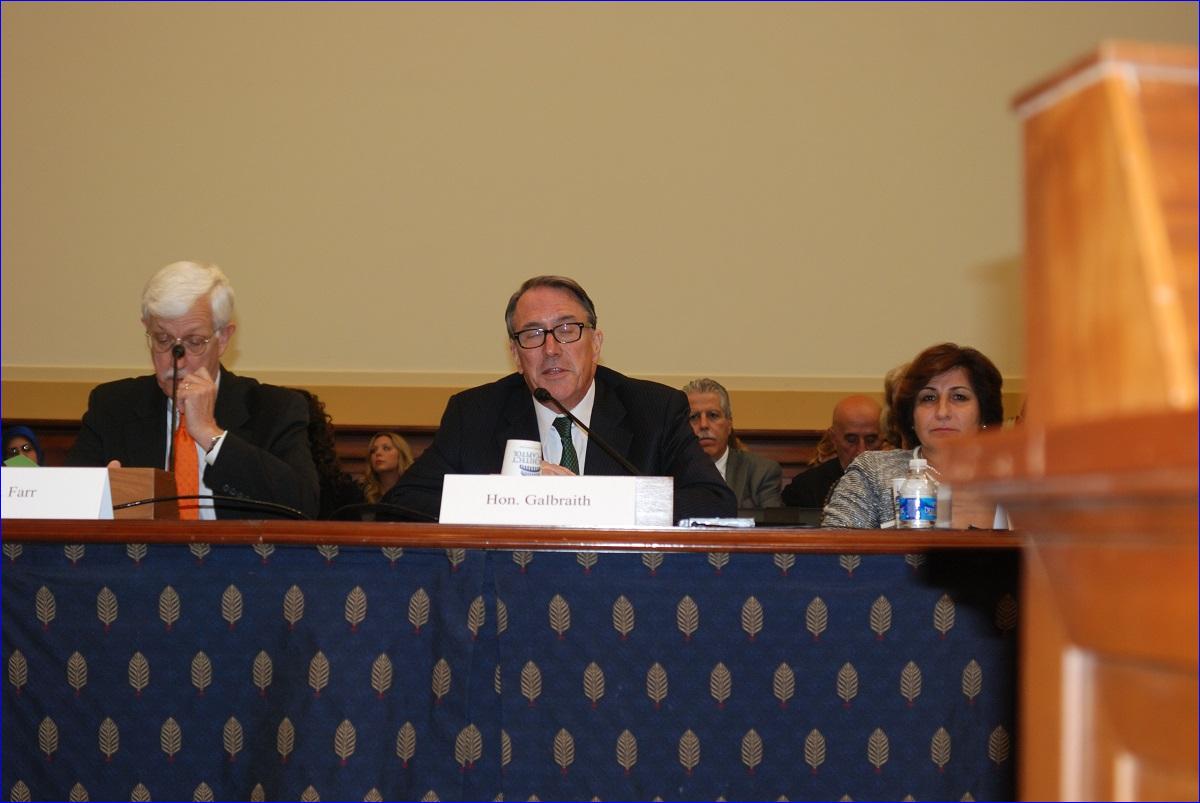


Congressman Smith began the hearing by saying "As images of beheaded American journalists James Foley and Steven Sotloff are seared into our consciousness, we would do well to honor their memories by recalling that they saw it as their mission to alert the world to the horrors committed by the fanatical Islamist terrorist group ISIS in Syria and Iraq: Children forced to view crucifixions and beheadings, women bartered, sold and raped, prisoners lined up on their knees to be shot -- this is ISIS' legacy," Smith said. "Today Christians and other religious minorities, such as Yezidis, Shabaks, and Turkmen Shiites are not just facing a long winter without homes. They are not just hungry and thirsty and wandering from village to village in Northern Iraq and Kurdistan. They are facing annihilation--genocide--by fanatics who see anyone who does not subscribe to its draconian and violent interpretation of Islam as fair game for enslavement, forced conversion or death." (full statement).
Testifying at the hearing were:
- The Honorable Tom Malinowski, Assistant Secretary, Bureau of Democracy, Human Rights, and Labor, U.S. Department of State
- The Honorable Anne Richard, Assistant Secretary, Bureau of Population, Refugees, and Migration, U.S. Department of State
- The Honorable Nancy Lindborg, Assistant Administrator, Bureau for Democracy, Conflict and Humanitarian Assistance, U.S. Agency for International Development
- The Honorable Peter Galbraith, (Former Advisor to the Kurdistan Regional Government)
- Her Excellency Pascale Esho Warda, President, Hammurabi Human Rights Organization (Former Minister of Immigration and Refugees in the Iraqi Government)
- Thomas Farr, Ph.D., Director, Religious Freedom Project, Berkley Center for Religion, Peace, and World Affairs, Georgetown University
- Johnny Oram, President, Chaldean American Chamber of Commerce of California, in lieu of Bishop Ibrahim N. Ibrahim, Bishop Emeritus, Chaldean Eparchy of St. Thomas the Apostle

Short term:
- Provide humanitarian aid to the refugees. Aid is inadequate. There is a lack of shelter, food, water, medicine and clothing.
- Clear ISIS from Mosul and the Nineveh Plain so that the displaced residents may return to their homes ahead of winter. They will not return if ISIS is still in Mosul.
- Designate the Nineveh Plain as a safe haven and provide an international force for protection to stabilize the region, regardless of whether Iraqi or Kurdish forces are there, so that residents may return to their homes. The Nineveh Plain has been neglected by both Kurds and Baghdad. This long term safe haven would be similar to the one provided for the Kurds in 1991.
- Financially compensate all displaced persons for their property and income losses.
Long term:
- Establish an autonomous region for each the Assyrian Christians and the Yazidis, to be administered by them.
- Create Assyrian Christian and Yazidi manned units within Iraqi police, military, security and other institutions and station these in Assyrian and Yazidi areas, so that they will defend themselves and their villages.
- Gain international recognition for the genocide against Assyrian Christians, which has been ongoing since 1915.

Senator Carl Levin visited Erbil on September 3 and had the opportunity to meet with Assyrian/Chaldean and Yazidi religious leaders in which they provided a summary which is consistent to the recent statement issued by Patriarch Sako of what their immediate requests and needs are. They are primarily:
- The international community must immediately intervene to provide direct humanitarian aid to the displaced Christians and other minorities in the regions of Erbil and Dohuk.
- Christian and other minority villages in the Nineveh Plains must immediately be liberated and the community must have safe passage to return.
- The Christian and other minority villages in the Nineveh Plains must be protected by an international force under the supervision of the United Nations.

In the past perpetrators of genocide and crimes against humanity have tried to cover up their crimes. ISIS advertises its atrocities in slickly produced videos," Galbraith said. "We know what is happening. The question is what will the United States and its allies do about it." He urged that the West recognize that ISIS is committing genocide against Iraq's Christians and the Yazidis, and is killing, causing serious bodily and mental harm, and inflicting intolerable physical conditions "with the announced intent of destroying the Christian and Yazidi religious groups in their entirety.
In his testimony, Thomas Farr said:
Tomorrow we mark the 13th anniversary of the Islamist terrorist attacks of September 11, 2001. What we are facing in Iraq and Syria today has deeply troubling similarities to 9/11, both in its origins and its threat to American national security. There is, of course, at least one major difference between now and then. While Christians in the Middle East were under mounting pressure in 2001, today their very existence is at risk. We are witnessing the disappearance of Christians and Christianity from Iraq, Syria, and elsewhere in the Middle East -- a religious/cultural genocide with terrible humanitarian, moral, and strategic consequences for Christians, for the region, and for us all.
In his testimony, Tom Malinowski said:
The U.S. government is very focused on ending ISIL's reign of terror and ensuring protection and access to humanitarian assistance for all its victims. We are particularly appalled by ISIL's targeted and systematic efforts to drive out and potentially eradicate entire religious communities from their historic homelands in the Ninewa plains area and Sinjar district. Among ISIL's clear ambitions is the destruction of Iraq's rich religious heritage and ethnic diversity and absolute subjugation of all people within its reach. The Iraqi people need and deserve a government that not only represents all of their voices but also provides basic government services and security.
In her testimony, Anne Richard said:
Now, most members of religious minority communities have fled Ninewa. In the Kurdish region, they joined hundreds of thousands other displaced Iraqis, including approximately 100,000 Christians, who escaped the brutal occupation of Mosul and nearby communities. UNHCR estimates that the Kurdish regions of northern Iraq now host more than one million people, a mix of displaced Iraqis (850,000) and Syrian refugees (215,000).
In his testimony, Thomas Staal said:
The daily atrocities committed by ISIL against the Iraqi people -- including the violence targeting ethnic minorities and religious groups -- is claiming and destroying countless lives, tearing at the fabric of society, and further enflaming sectarian violence. Furthermore, ISIL's abhorrent treatment of women and children is unconscionable. These circumstances demand--and are receiving--our focused attention and utmost effort.

or register to post a comment.